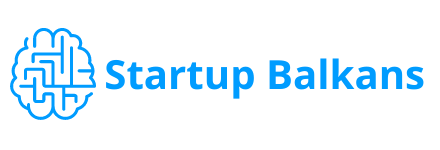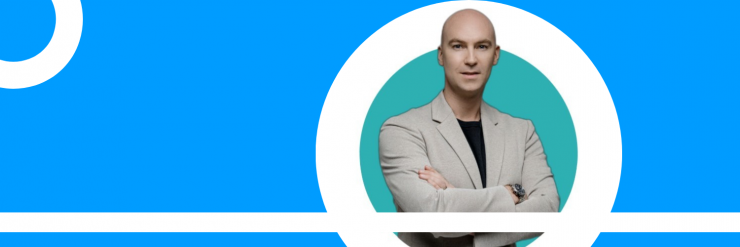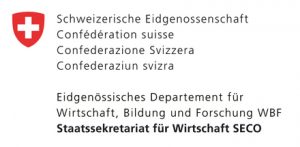The reason is simple: teams worked with Patrick online. The main obstacle to his physical presence was COVID-19, but as soon as the Swiss EP team discovered that Patrick was an extraordinary online lecturer and coach, they kept him busy.
During his visit, we talked to Patrick and captured some of his impressions on startups in Serbia and the region.
Hi Patrick, welcome to Serbia. How do you like it here?
I visited Serbia twice in 2022 and have an excellent bond with the culture, people and ambition here. The people I interacted with were full of energy. So I really, really loved both my trips to Serbia so far.
You have been working with numerous startup teams here. What are your impressions of them and the level of support they are receiving?
As for the startup teams, the teams are ambitious, but the ambition comes from having a platform to be ambitious on. Serbia has a good level of investment and support, but with common sense. And what do I mean by this? I’ve worked in countries with startup funding over the top and an abundance of investment or grants to help teams. But the problem is that it makes them almost spoiled and unwilling to take risks. Such teams were not ready to hustle or to push hard. So what I found in Serbia is (particularly with Swiss EP supporting different projects) sensible money spending and trying to do something that will impact many teams.
That is an interesting perspective—thanks for pointing it out. You have met some founders you’ve been working with for the first time. What are your impressions?
I’ve had the opportunity to work with several teams on multiple occasions instead of just one discussion and leaving them to try to figure everything out. I realized that the teams have a chance to be ambitious based on whether they do well. They know there’s more support out there if they perform well. The hardest part for most companies is breaking through that barrier of going from a comfortable, well-paid developer to low paid, stressed founder, and you need somebody to support you. That’s where Swiss EP fits so well—they help you to mitigate the risk a little bit until you get on your feet and then transition. In Serbia, organizations like DSI or other programs are taking over. They say: Well, let’s push you a little bit more and get you ready for an accelerator. And with Catapult Accelerator active, it now seems like there’s a pipeline for teams to have an excellent opportunity to get their ducks in a row and get ready to scale outside of Serbia. Ambition is not always with teams from the start because everybody’s always scared of how much to push it. But I think they got the chance to say the more training you give, the more ambitious they get because they realize this is doable.
What are the biggest obstacles for startups in Serbia and the Balkans on their way to success?
The general summary that I found compared to other European markets is that startups in the Balkans are significantly weakened by the payment systems. So if I could fix one thing to massively fast-track or the start of growth, it’s the banking and payment systems here. I’ve not spoken to a single fintech business because I don’t think people would consider it. But, on the other hand, in the Baltics, where I also work, one in ten teams I ever meet come up with a payment app, a saving money app, and all sorts of different money-related things. So, to give you a straight answer—for teams in the Balkans, the most apparent obstacle is the financial system.
Yes, finance is pretty tricky here. But we hope it’ll improve over time. You mentioned you’re working in Baltics too, and we know you’re working with teams across Europe. Are there any differences comparing teams from the Balkans to teams from other parts of the continent?
Regarding resources and training, I haven’t seen a massive difference. Teams here have the same quality of training and opportunities as teams elsewhere. Also, there’s no cultural difference at all. It was a blanket fit in terms of excellent, smart founders, polite, and hard-working, which I really love.
And are there any differences between startups in the region?
I think that (I would never generalize, but I could say) I’ve not seen one country in the Balkans that was different in terms of personality. However, thinking in terms of teams—yes, there are differences. Obviously, the talent Serbia has is way more, and I would say probably five times better. What I’ve found in other countries is they have some creativity to try, but they’re building domestic companies intending to be okay in the country. Whereas a lot of Serbian teams I’ve spoken to are just trying to get some sales very quickly to launch in Europe.
You worked online with our teams, and now you had a chance to meet some of them in person. So, what do you prefer—online or offline?
Online has been functionally very, very good because you can share your screen and click on things you can watch while listening. It’s actually perfect for focus and concentration. But when you meet the teams, you start seeing some cracks or vulnerabilities that impact their work. So, I love physicality so much because I can learn that somebody was not as confident as I thought they were online, that they wouldn’t have taken the risks I’m pushing them to do. After all, it’s not in their nature. You only profile a person as much mentally online as you do physically to pick up on the cues. So, in conclusion, I like both, but I prefer offline.
Thank you, Patrick, for taking the time to talk to us. In the end, how would you sum up your visit to Serbia?
I am honored and uplifted to be here. I feel energized and motivated—like the Serbian teams. They get support and love the balance, so they want to do more because of the support they’re getting. It’s a healthy cycle, and I’m glad to be a part of it.
Thanks again Pat. Enjoy your stay!




